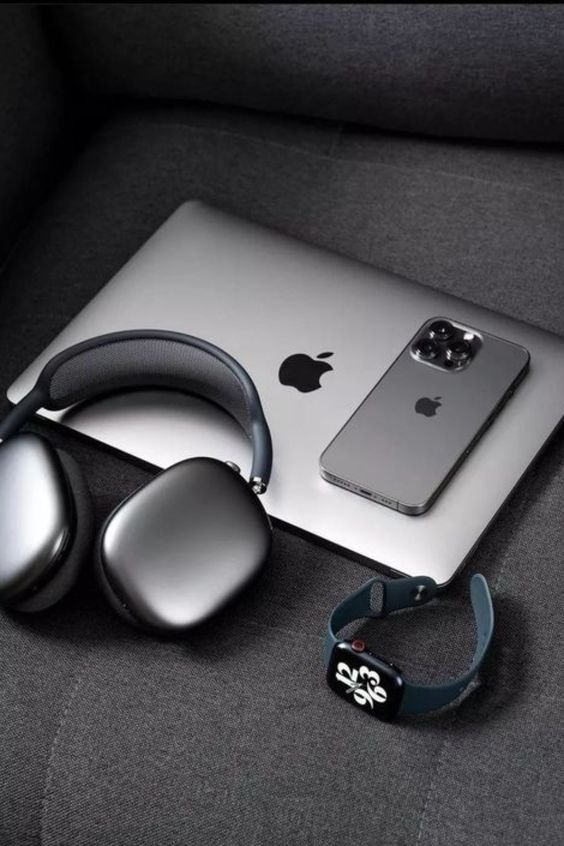
AI-powered personal assistants have revolutionized the way we interact with technology, making everyday tasks easier, more efficient, and often more enjoyable. From managing schedules and reminders to answering queries and controlling smart home devices, these assistants have become an integral part of our digital lives. Here’s a look at the top 10 AI-powered personal assistants that are leading the way in 2024.
1. Amazon Alexa
Platform: Amazon Echo, iOS, Android
Developer: Amazon
Why Alexa?
Amazon Alexa is one of the most popular AI-powered personal assistants, known for its versatility and extensive integration with smart home devices. Alexa can answer questions, play music, set reminders, control smart home gadgets, and much more. Alexa’s vast “Skills” ecosystem allows third-party developers to create custom functionalities, enhancing its capabilities far beyond the basic features.
Key Features:
- Smart Home Integration: Alexa works with thousands of smart home devices, enabling users to control lights, thermostats, security cameras, and more with simple voice commands.
- Multi-Device Compatibility: Alexa can be accessed from Amazon Echo devices, smartphones, smart TVs, and other compatible gadgets.
- Voice Shopping: Enables users to shop on Amazon with voice commands.
- Routine Automation: Users can set up routines to automate daily tasks, such as turning on lights and playing music in the morning.
Why It Stands Out: Alexa’s wide range of skills, compatibility with various devices, and robust smart home integration make it a leader in the AI personal assistant space.
2. Google Assistant
Platform: Android, iOS, Google Home, Smart Displays
Developer: Google
Why Google Assistant?
Google Assistant leverages Google’s powerful search engine capabilities to provide accurate and comprehensive answers to users’ queries. It integrates seamlessly with the Google ecosystem, including Google Calendar, Gmail, Google Maps, and more, making it an excellent choice for users deeply embedded in the Google ecosystem.
Key Features:
- Contextual Understanding: Google Assistant offers deep contextual understanding, allowing it to carry on conversations that feel natural and intuitive.
- Smart Home Control: Compatible with a wide range of smart home devices, enabling voice control for lights, thermostats, cameras, and more.
- Language Support: Supports multiple languages and can translate in real time, making it ideal for multilingual households or travelers.
- Proactive Suggestions: Provides proactive suggestions based on user behavior, such as reminding users of upcoming flights or suggesting alternative routes in traffic.
Why It Stands Out: Google Assistant’s ability to understand context, integrate with Google services, and support multiple languages makes it a versatile and intelligent personal assistant.
3. Apple Siri
Platform: iOS, macOS, iPadOS, watchOS, HomePod
Developer: Apple
Why Siri?
Apple Siri is the built-in AI-powered assistant for all Apple devices. Siri excels in providing a seamless experience across Apple’s ecosystem, from iPhones and iPads to Macs and the Apple Watch. It can perform tasks like sending messages, setting reminders, playing music, and providing directions with simple voice commands.
Key Features:
- Deep Integration with Apple Ecosystem: Siri integrates deeply with all Apple services, including iMessage, Apple Music, and HomeKit.
- Shortcuts and Automation: Users can create custom voice commands and automate tasks using Siri Shortcuts.
- Privacy and Security: Apple emphasizes privacy, ensuring that Siri is secure and user data is protected.
- Multilingual Capabilities: Supports multiple languages and accents, providing a personalized experience.
Why It Stands Out: Siri’s seamless integration across Apple devices and strong focus on privacy make it the ideal choice for Apple users.
4. Microsoft Cortana
Platform: Windows, iOS, Android (Limited Support)
Developer: Microsoft
Why Cortana?
Cortana, developed by Microsoft, is an AI-powered assistant that integrates deeply with the Windows operating system. It offers productivity tools, such as managing emails, setting reminders, and assisting with calendar management. Cortana is particularly useful in business environments, where it integrates with Microsoft Office 365 and other enterprise tools.
Key Features:
- Productivity Focus: Helps users manage tasks, set reminders, schedule meetings, and more within the Microsoft ecosystem.
- Windows Integration: Provides hands-free control of Windows devices, enhancing productivity and accessibility.
- Enterprise Tools Integration: Works seamlessly with Microsoft Office 365, Teams, Outlook, and other Microsoft enterprise solutions.
- Voice Commands and Typing Interface: Allows users to interact with the assistant via voice or text, providing flexibility in different environments.
Why It Stands Out: Cortana’s deep integration with Windows and Microsoft’s suite of productivity tools makes it a valuable assistant for business users.
5. Samsung Bixby
Platform: Samsung Galaxy devices, SmartThings
Developer: Samsung
Why Bixby?
Samsung Bixby is an AI-powered assistant designed specifically for Samsung devices, including Galaxy smartphones, smartwatches, smart TVs, and home appliances. Bixby offers a range of features that enhance device usability, including voice control, visual search, and integration with Samsung’s SmartThings ecosystem.
Key Features:
- Device Control: Allows users to control Samsung smartphones, TVs, and smart home appliances with voice commands.
- Contextual Awareness: Understands the context of the user’s requests, providing more relevant responses.
- Bixby Vision: A visual search feature that uses the camera to recognize objects, translate text, and provide information.
- Routine Automation: Users can create Bixby routines to automate daily tasks based on triggers like time, location, or device status.
Why It Stands Out: Bixby’s focus on device control and integration with Samsung’s broad range of products makes it a strong choice for Samsung users.
6. Hound
Platform: iOS, Android
Developer: SoundHound Inc.
Why Hound?
Hound is a voice assistant developed by SoundHound Inc. It differentiates itself with its fast and accurate speech recognition and understanding capabilities, providing quick responses to complex queries. Hound also integrates with several third-party services, offering users a range of functionalities beyond basic voice commands.
Key Features:
- Speech-to-Meaning Technology: Processes voice commands with incredible speed and accuracy, understanding natural language quickly.
- Complex Query Handling: Can handle complex queries involving multiple parameters, such as “Find a hotel near the airport that is pet-friendly and costs less than $150.”
- Music Recognition and Control: Integrates with SoundHound’s music recognition capabilities to identify songs and play music.
- Third-Party Integrations: Works with various apps and services, such as Uber, Yelp, and more, to provide a broader range of functionalities.
Why It Stands Out: Hound’s ability to handle complex queries quickly and accurately sets it apart from many other AI assistants.
7. Mycroft
Platform: Linux, Windows, Android, Raspberry Pi
Developer: Mycroft AI
Why Mycroft?
Mycroft is an open-source AI assistant that provides a customizable platform for developers to create and modify personal assistants. It runs on various operating systems, including Linux, Windows, Android, and even Raspberry Pi, making it a flexible choice for those looking to build custom AI solutions.
Key Features:
- Open-Source Flexibility: Fully open-source, allowing developers to modify and expand its functionalities.
- Cross-Platform Compatibility: Works on a range of devices and operating systems, including IoT devices.
- Skill Development: Supports the creation of custom skills and integrations, allowing users to tailor Mycroft to their specific needs.
- Community Support: Active developer community contributes to the development and improvement of Mycroft.
Why It Stands Out: Mycroft’s open-source nature and flexibility make it ideal for developers and tech enthusiasts who want to build custom AI assistants.
8. AIVC (Alice)
Platform: Android
Developer: YourApp24
Why AIVC (Alice)?
AIVC, also known as Alice, is a voice assistant for Android that offers basic functionalities like answering questions, setting reminders, and performing simple tasks. It is customizable and can be used to control a variety of apps on an Android device, including navigation, phone calls, and SMS.
Key Features:
- Customizable Commands: Allows users to create custom voice commands for controlling apps and functions on their Android devices.
- App Control: Can control various Android apps, including navigation, phone, and messaging apps.
- Simple Interface: Offers an easy-to-use interface with straightforward commands.
- Multilingual Support: Supports multiple languages for a wider user base.
Why It Stands Out: AIVC (Alice) provides a simple and customizable voice assistant experience for Android users.
9. Braina
Platform: Windows, iOS, Android
Developer: Brainasoft
Why Braina?
Braina (Brain Artificial) is an AI-powered assistant and voice recognition software for Windows. It is designed to function as a virtual assistant that understands natural language and can perform a wide range of tasks, from voice dictation to controlling computer functions, playing music, and more.
Key Features:
- Voice Recognition: Allows hands-free control of a PC through voice commands, supporting over 100 languages.
- Text-to-Speech and Dictation: Converts voice to text for emails, documents, and other applications.
- Web Search: Can search the web for information and perform tasks like opening websites.
- Multiplatform Compatibility: Available on Windows, with companion apps for iOS and Android.
Why It Stands Out: Braina’s focus on voice recognition and dictation makes it a valuable tool for productivity and accessibility on Windows devices.
10. Robin
Platform: Android
Developer: Audioburst
Why Robin?
Robin is an AI-powered voice assistant designed for drivers. It provides hands-free navigation, real-time traffic updates, voice-activated texting, and more, making it a helpful tool for those on the go. Robin is designed to be a safer alternative to using a smartphone while driving.
Key Features:
- Driving Assistance: Provides navigation, traffic updates, and weather forecasts, making it ideal for drivers.
- Voice Commands: Allows voice-activated texting, calling, and control of music playback.
- Personalized Updates: Provides personalized news updates and suggestions based on user preferences.
- Intuitive Interface: Designed to be easy to use while driving, with large buttons and simple voice commands.
Why It Stands Out: Robin’s focus on driving safety and convenience makes it a unique AI assistant for users who spend a lot of time on the road.
Conclusion
AI-powered personal assistants have become integral tools in managing our daily lives, providing convenience, efficiency, and enhanced productivity. From popular choices like Amazon Alexa and Google Assistant, which offer extensive smart home integration, to specialized assistants like Robin for drivers and Mycroft for developers, there is an AI assistant for every need and preference. As AI continues to advance, these assistants will only become more capable, intuitive, and indispensable in our personal and professional lives.









